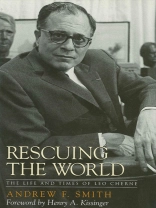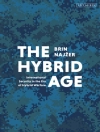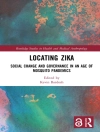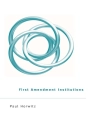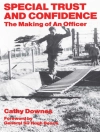A biography of one of America’s leading humanitarians who, as an advisor to nine presidents, also had a lasting effect on American foreign policy.
Leo Cherne’s life brimmed with paradox and improbability. He was born in the Bronx to a poor, immigrant, Jewish family, and yet rose to the heights of economic and political power in WASP America. A successful entrepreneur and an unofficial advisor to nine presidents, he nevertheless devoted the majority of his time to humanitarian causes, particularly the International Rescue Committee, which he chaired for forty years. From Hungary to Cuba to Cambodia, Cherne traveled across the globe on behalf of political refugees. A consummate networker, he also had the uncanny ability to attract and cultivate talented people before they became prominent, including such figures as John F. Kennedy, Ronald Reagan, Patrick Moynihan, Claiborne Pell, Tom Dooley, William Casey, John Whitehead, and Henry A. Kissinger. He was presented with the Presidential Medal of Freedom in 1984 by Ronald Reagan, who proclaimed that although never elected to governmental office, Leo Cherne had more influence on American foreign policy than most elected officials. The underlying theme of his life was that one person, without family contacts or wealthy connections, could make a difference worldwide in political and humanitarian affairs.
สารบัญ
Foreword by Henry A. Kissinger
Introduction
A Note on Sources
Acknowledgments
1. Setting the Stage
2. Researching America
3. Rescuing the Postwar World
4. Combusting Spontaneously
5. Uncovering Communists
6. Lobbying for Indochina
7. Confronting Genocide
8. Sculpting the World
9. Ransoming Prisoners
10. Guiding Intelligence
11. The Falling Curtain
Notes
Selected Biography
Index
เกี่ยวกับผู้แต่ง
Andrew F. Smith is the president of The American Forum for Global Education and teaches at The New School University. He is the author of many books, including The Saintly Scoundrel: The Life and Times of Dr. John Cook Bennett and International Conflict and the Media.
